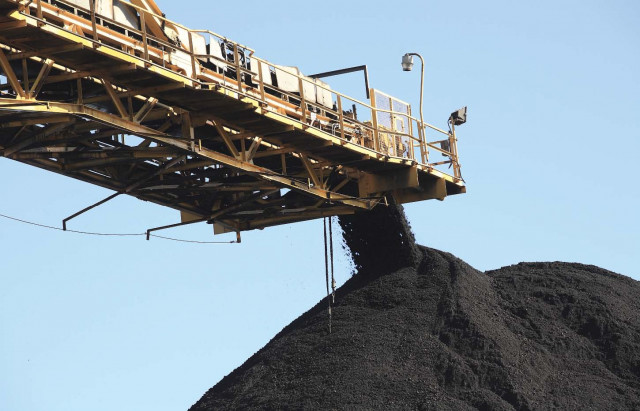Thar coal: Despite PM’s orders ministry fails to allocate funds
Project team seeking Rs5b, with immediate release of Rs2b.

Thar coal: Despite PM’s orders ministry fails to allocate funds
Despite clear instructions of Prime Minister Yousaf Raza Gilani, the finance ministry has not yet committed any funds for providing much-needed boost to the Thar coal project.
In a meeting held here on Friday, Dr Samar Mubarakmand and his team gave a detailed briefing to Adviser to Prime Minister on Finance Dr Abdul Hafeez Shaikh on available options and financing required to get maximum benefits from coal reserves but could not get any words on release of funds, said sources privy to the meeting.
Just a day earlier, the premier while chairing a meeting of the Council of Common Interests – the highest constitutional body to resolve federal and provincial matters – had directed the finance ministry to give top priority to arranging funds for the Thar coal project because of it being an important national project for power generation.
The options tabled in front of the top economic managers included diesel production with the help of coal costing a mere $40 per barrel, power generation at Rs4 to Rs5 per unit and production of 2.2 billion cubic feet of gas per day with an investment of $1.2 billion.
Currently, the country’s total gas production is 4 billion cubic feet per day against demand of 5.5 billion cubic feet.
Sources said as a delaying tactic, the Planning Commission raised the issue of ownership arguing that the central government should not invest in the project as the resources belong to the provincial government.
Finance ministry spokesman and Planning Division secretary were not available for comments.
Block-V of Thar allocated for coal gasification has reserves of 1.4 billion tons of coal, which are only 0.8 per cent of the total assessed coal reserves in the Thar desert. Various geological surveys have put total reserves at 175 billion tons.
The government has approved the underground coal gasification project at an estimated cost of Rs9 billion and initial experiments have proved successful. The project, which started under the supervision of Dr Samar Mubarakmand, Member Science and Technology of Planning Commission, is facing delays due to the finance ministry’s reluctance to provide funds.
Authorities working on the Thar project have demanded Rs5 billion, with immediate release of Rs2 billion, to advance the project.
Six options
“No decision has yet been taken on the release of funds for the project,” said an official on condition of anonymity. In addition to raising financing issues, Mubarakmand presented six options to the finance adviser to achieve better use of the coal reserves, he said.
Mubarakmand said the country could produce diesel, car fuel, fertiliser, kitchen gas, electricity and plastic by using the huge coal reserves. Each option had a price tag and it was up to the government which option it picked, the official said.
A highly constrained and unpredictable energy supply has become a longstanding problem. According to the International Monetary Fund, while many reform plans have been prepared, implementation has not been sustained. There are widespread outages, averaging eight hours a day, which have become a large constraint on growth causing an estimated 2 per cent loss in the national output every year.
An official said the country could produce coal-powered electricity at Rs4 to Rs5 per unit against power generated at Rs12-13 per unit by using expensive furnace oil. Similarly, the cost of fertiliser production can also be brought down with the help of gas to be produced through the underground gasification technique.
The government is expected to call a meeting of the Thar Coal and Energy Board, headed by Sindh chief minister, to find a way out.
Published in The Express Tribune, February 11th, 2012.



















COMMENTS
Comments are moderated and generally will be posted if they are on-topic and not abusive.
For more information, please see our Comments FAQ